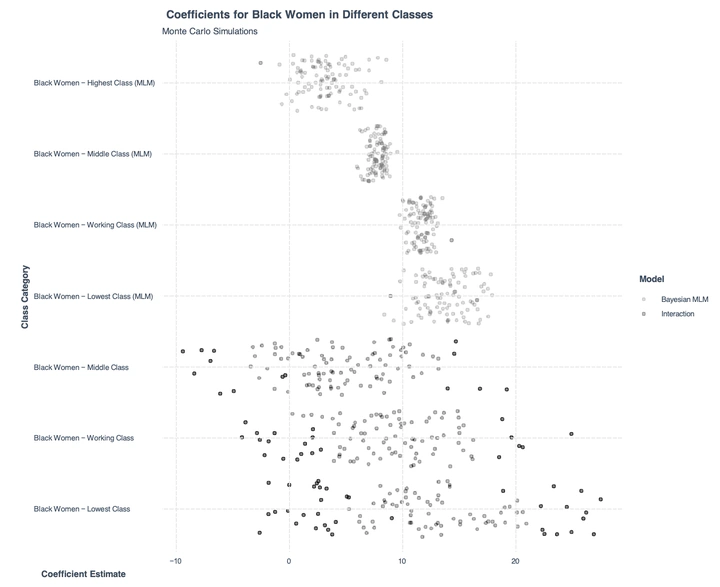Bayesian Multilevel Modeling for the Intersections of Race, Gender, and Class
2025-04-22··
0 min read
Melina Much
 Image credit: MEM, PhD
Image credit: MEM, PhDAbstract
Intersectionality is widely recognized as one of the largest contributions to the study of race, gender, and class across the academy. However, the quantitative operationalization of intersectionality within political science is often unsatisfactory. I provide evidence that the Bayesian multilevel model is an accessible and flexible tool for understanding intersectional dynamics in political behavior. Using both a synthetic simulation and a real-world example with the American National Election Survey (ANES), I show how Bayesian multilevel models increase our inferential understanding of group-based heterogeneity in public opinion and political behavior. Conventional techniques, such as interaction terms, frequently yield estimates that are obscured by considerable noise, making it challenging to discern meaningful patterns. In contrast, the Bayesian multilevel model excels at revealing underlying patterns in small sample-size environments. In doing so, the model better captures the interwoven nature of race, gender, and class that often goes unnoticed in political science research.
Type
Publication
In Political Research Quarterly